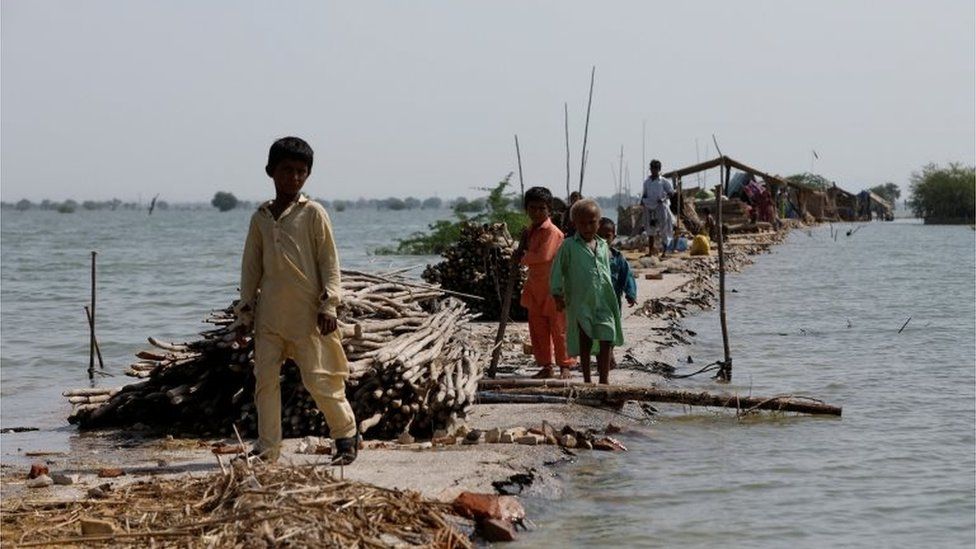ARTICLE AD BOX
By Pumza Fihlani in Islamabad & Simon Fraser in London
BBC News
 Image source, Reuters
Image source, Reuters
The waters have submerged houses and roads across a vast area
Water levels in Pakistan's biggest lake are starting to recede, officials say, after last-ditch attempts to prevent it from bursting its banks.
Manchar Lake, in Sindh province, is dangerously full after record monsoons that inundated a third of Pakistan.
Its banks were deliberately breached to protect surrounding areas and more than 100,000 people have been displaced.
Officials are racing against time to rescue and evacuate thousands of villagers who are still stranded.
"We see the water is now starting to come down," provincial minister Jam Khan Shoro told the BBC. "If we didn't make the breaches, several towns with big populations would have been destroyed and many more people in danger."
Floods in Pakistan have affected some 33 million people and caused at least 1,343 deaths, Pakistan's National Disaster Management Agency said.
Officials have said a little over a quarter of a million people are in shelters, a fraction of those who need help.
Damaged infrastructure is also hampering aid and rescue operations, which cannot keep pace with demand. Some connecting roads in Sindh province have either collapsed, are flooded or are backed up for days with queuing traffic.
Pakistan is facing one of its worst climate-induced natural disasters in years, as record torrential rainfall and melting glaciers in the country's northern mountains have caused devastating floods.
Meanwhile, UN children's agency Unicef has said more children are at risk of dying from disease in Pakistan because of the shortage of clean water.
The disaster has also highlighted the stark disparity between countries that are the largest contributors towards climate change and countries that bear the brunt of its impact.
Pakistan produces less than 1% of global greenhouse gas emissions but its geography makes it extremely vulnerable to climate change.

 2 years ago
22
2 years ago
22








 English (US) ·
English (US) ·